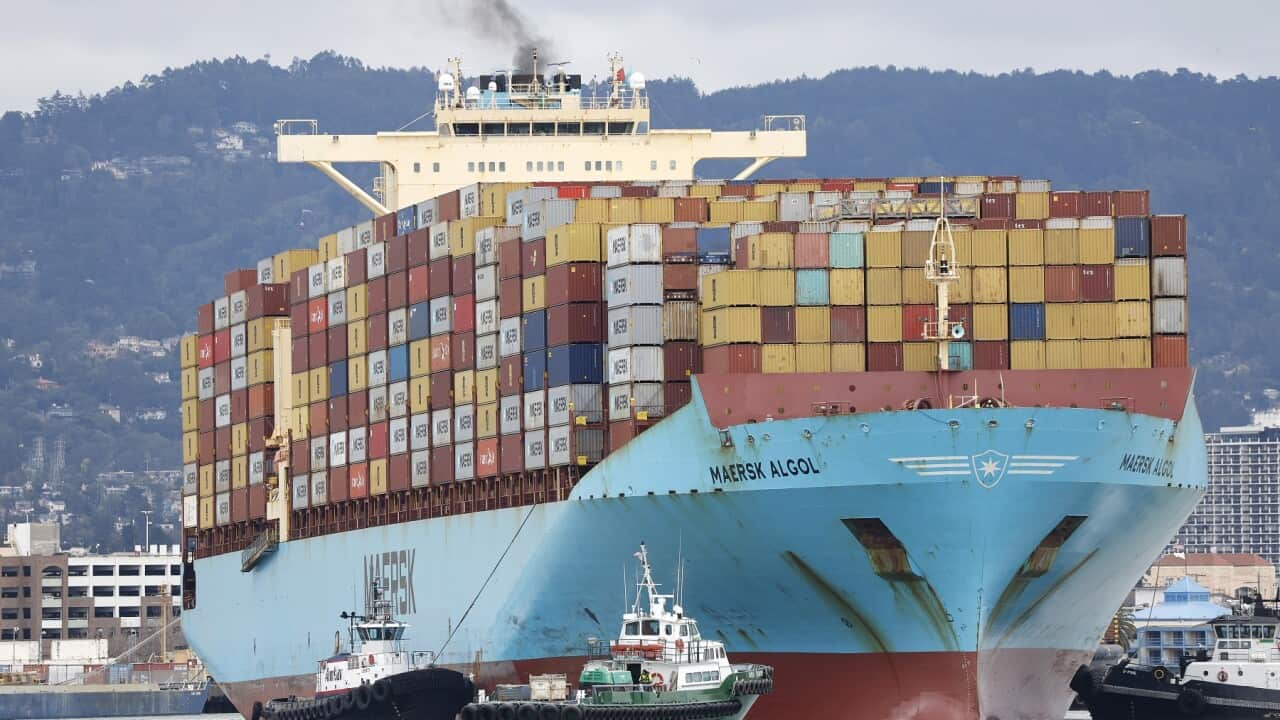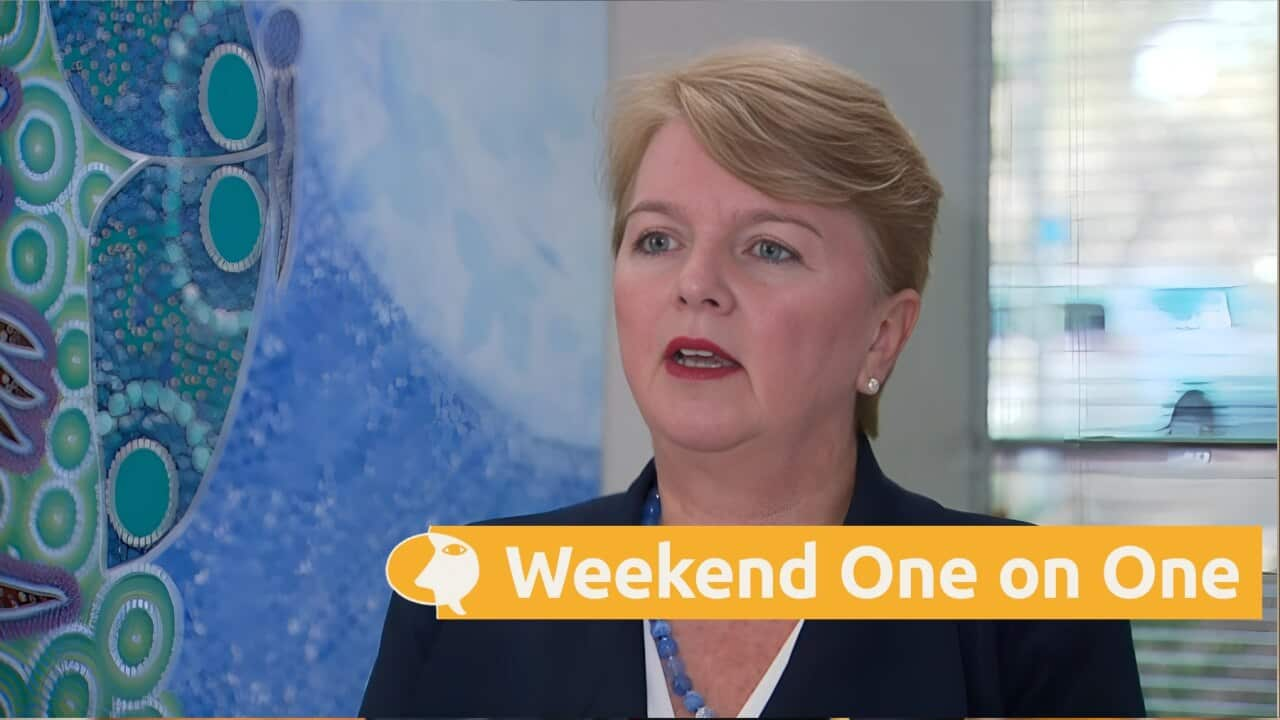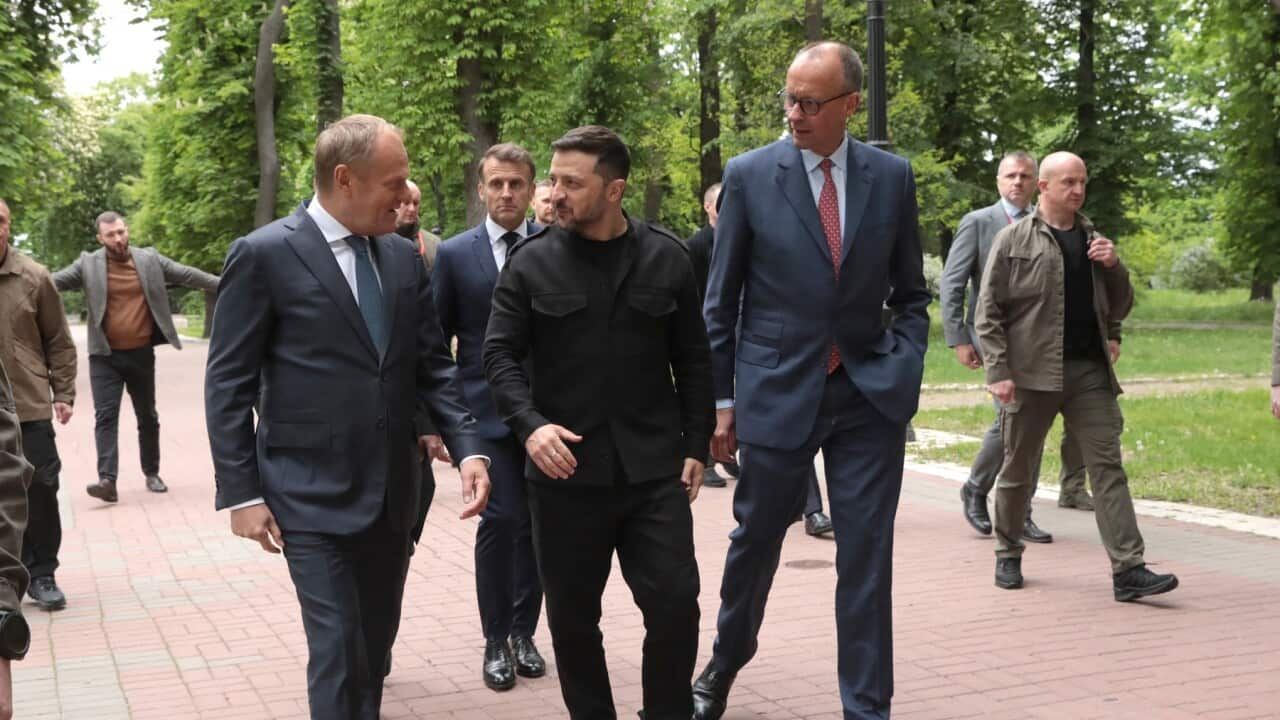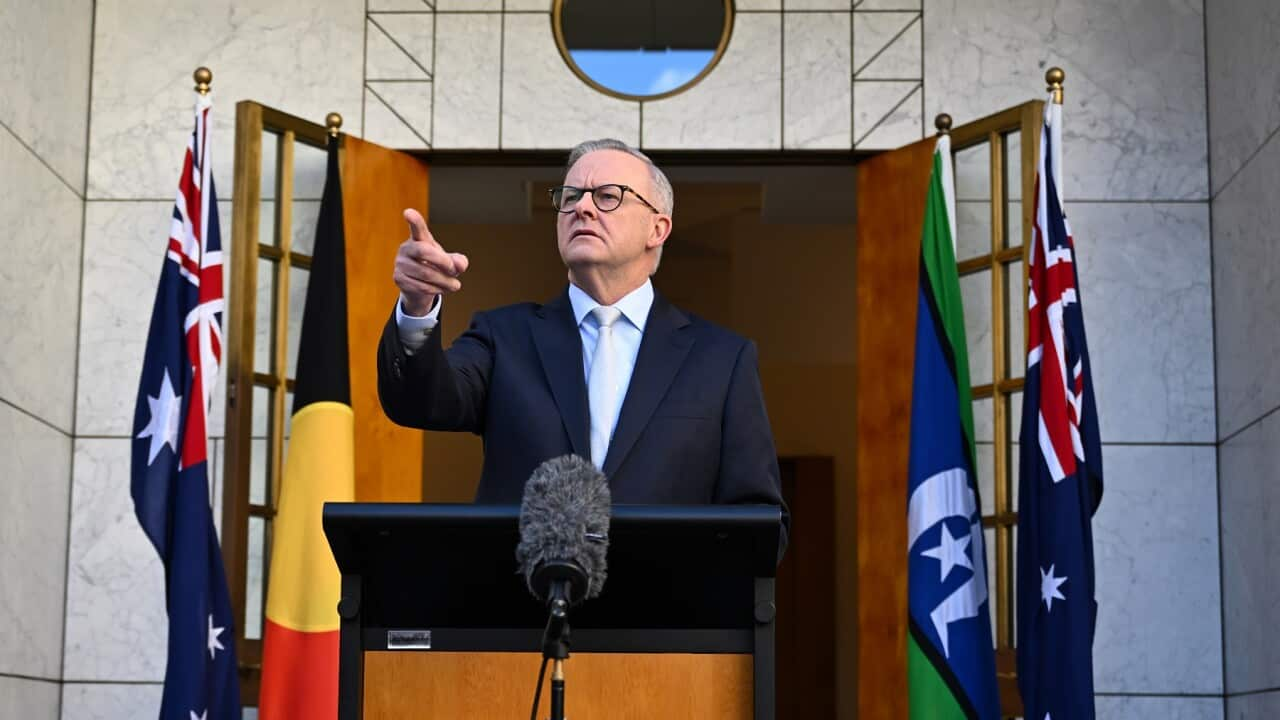TRANSCRIPT
“The tariffs are going to make us very rich and very strong.”
President Donald Trump’s tariffs on Mexico, Canada and China have sent Wall Street on a roller coaster ride.
The S&P 500, which tracks the performance of 500 major companies, fell by 0.8 per cent, following sharper losses across Asia and Europe
The Dow Jones Industrial Average, which reflects 30 large US companies, dropped 0.3 per cent.
And the Nasdaq Composite, which includes many technology stocks, lost 1.2 per cent.
At one point, the S&P 500 was down by nearly two per cent, and the Dow Jones dropped 665 points, showing a sharp decline before recovering slightly.
However, markets pared losses after Mexico’s president announced a one-month reprieve had been negotiated for her country.
“I told President Trump, well, let's put it on pause for a month and I am sure that in this month and I'm sure that in this month, we'll be able to have results, good results for your people, good results for the people of Mexico, and this was the result of the agreement. It was a good conversation with respect.”
Mr Trump says the reprieve came after Mexico's government agreed to send thousands of soldiers to the border.
“They've agreed to put in 10,000 soldiers permanently, like forever, 10,000 soldiers at their side of the border and stop fentanyl and illegal aliens from coming into our country. They have a big incentive to do. Other than that, we've agreed to talk and consider various other things. We haven't agreed on tariffs yet.”
As for Canada, President Trump says tariffs against the US's neighbour to the north, would go into effect on Tuesday.
But then Canada's Prime Minister Justin Trudeau announced on social media that his nation had secured a 30 day reprieve under similar terms as Mexico.
“I just had a good call with President Trump. Canada is implementing our $1.3 billion border plan — reinforcing the border with new choppers, technology and personnel, enhanced coordination with our American partners, and increased resources to stop the flow of fentanyl. Nearly 10,000 frontline personnel are and will be working on protecting the border.”
Mr Trudeau had earlier threatened that Canada would retaliate in kind against any tariffs levied against it.
“As President Trump stated yesterday, he is still committed to placing tariffs on Canada starting as early as tomorrow, possibly. And we don't know precisely what that could look like, but I do know two things: first, if the President does choose to implement any tariffs against Canada, we're ready with a response. A purposeful, forceful, but reasonable immediate response.”
As for China, no reprieve has been announced, with tariffs set to go into effect on Tuesday.
Fu Cong is China's Ambassador to the United Nations.
“Indeed, we are firmly opposed to this unwarranted increase, and we do believe that this is in violation of the WTO rules. So that's why China is filing a complaint at the WTO. And we're also aware we may be forced to take countermeasures. And let me also emphasize that there is no winner in a trade war. ... And frankly speaking, I don't think that raising tariffs is beneficial to the U.S. itself.”
Mr Trump has cited Fentanyl manufacturing by China as one of the reasons he would be imposing additional tariffs on Chinese goods.
“The excuse for raising the tariffs is on the fentanyl. Let me also say that this is also a very, very much unwarranted. And China is one of the countries that has a strict...the most stringent regulations on fentanyl. Actually, we have regulations on all fentanyl related substance. Actually, China is the only country that put the whole category of fentanyl related substance under regulations.”
Meanwhile, Stephan Dujarric, the spokesman for UN Secretary-General Antonio Guterres, has expressed concern about the impact trade restrictions would have on vulnerable people.
“We're obviously concerned about the impact growing trade restriction measures can have on the global economy, particularly in developing and developing countries and in places where there are vulnerable population. I mean, as you know, the global economy is already in a low growth context. You know, while trade restrictions we see are on the rise. It's important to note that most global trade continues to follow internationally agreed to rules by the World Trade Organization, which provides stability and certainty for the global economy.”
This comes as, EU Foreign Policy chief Kaja Kallas says if the US starts a trade war with Europe, it would only benefit China.
“What is clear, there are no winners in trade wars, if United States, the U.S., start a trade war, then the one laughing on the side is China. We are very interlinked, we need America and America needs us as well. The tariffs increase costs, they are not good for the jobs, not good for the customers either.”
It's not just tariffs that are raising global eye brows following Mr Trump's re-election.
His interest in Greenland is as well.
Mr Trump has floated the idea of buying or taking over Greenland, an autonomous territory of Denmark.
Denmark and the United States are NATO members, and the thought of one NATO territory seizing another NATO territory has left one reporter asking NATO Secretary-General Mark Rutte about the possibility of the US leaving NATO.
“On your question about NATO and the assumption that you could run NATO without the US, that is, for so many reasons, a silly thought but that means that you have European defence without the US being involved - that's what you're saying. That is a NATO, or whatever the organization is then called, without the US. For many reasons, that will not work.”
Since taking office on the 20th of January, President Trump has suspended USAID.
Hundreds of USAID programmes, worth billions in lifesaving aid, ground to a halt after Mr Trump froze most US foreign aid, citing his America First policy.
He is considering merging USAID with the State Department to improve efficiency and align spending with his agenda.
Secretary of State Marco Rubio has been appointed acting director of USAID.
While in El Salvador meeting President Nayib Bukele, he mentioned Mr Trump's desire to seize the Panama Canal from Panama and China.
“When we turned over the canal, we turned it over to Panama. We didn't turn it over to China. So you got there. And the Chinese control both entries to the port. Both entries to the port. We have a treaty obligation to protect the canal that comes under attack. But our Navy is paying fees to go through there. ... We don't want to have a hostile and negative relationship with Panama. I don't believe we do but we had a frank and respectful conversation, and I hope it'll yield fruits and results in the days to come.”
Meanwhile, World Health Organization chief, Tedros Adhanom Ghebreyesus, is asking countries to push Washington DC to reconsider its withdrawal from the global health body, another Trump administration decision.
“Two weeks ago, President Donald Trump signed an executive order announcing his intention to withdraw the United States from WHO. We regret the decision and we hope the US will reconsider. We would welcome constructive dialogue to preserve and strengthen the historic relationship between WHO and the U.S.A. that helped bring significant impacts like the eradication of smallpox. And I can give you a long list.”
The US withdrawal from the WHO means U-S-funding to the organisation ends
In 2022 through 2023, the U-S's contribution to the WHO accounted for approximately 22 per cent of the global health organisation's budget.
As a result the WHO is cutting back on spending.
“We are conducting a strategic alignment of resources with activities. We are freezing recruitment, except in the most critical areas. We are significantly reducing travel expenditure and we are looking to renegotiate major procurement contracts and reduce capital investments. More measures will be announced in due course.”
o













